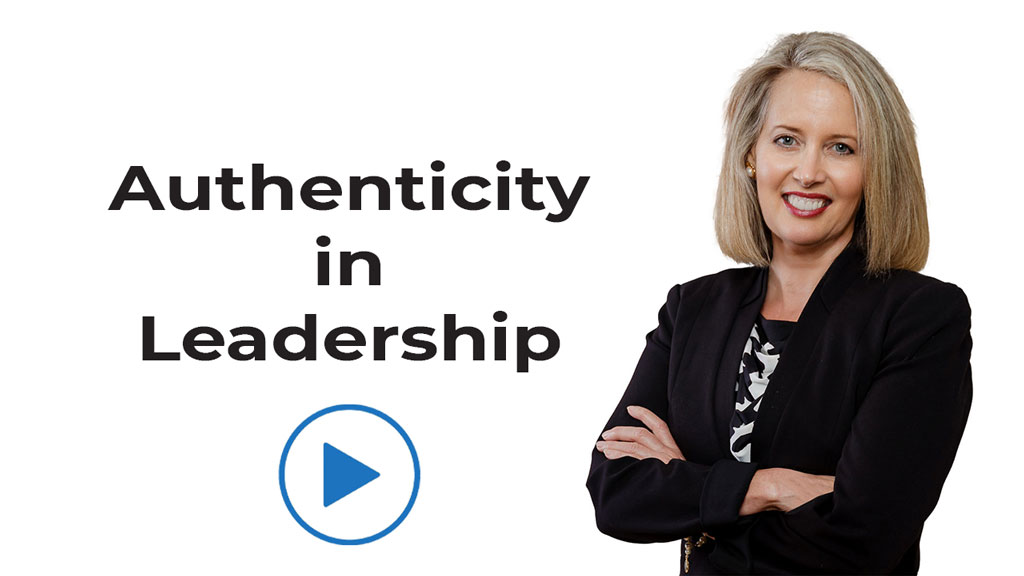
What does it mean to be an authentic leader? It simply means that you should be yourself all day, every day. We should all be ourselves, whether we’re parenting, working, or being with friends. Ideally, we’re the same self in every life setting and circumstance. I would ask you, “What does it mean to be you? Who are you?”
Sometimes, and overtime, we might forget who we are. We become consumed by going to school, getting and holding down a job, taking care of family, maintaining friendships, all while trying to take care of ourselves. We’re striving to reach milestones and achieve goals that we may not have fully considered, doing things because of what we believe is expected of us. And in each of those different settings, work, school, family, friends, we might be shifting our personalities, either slightly or dramatically, to accomplish our goals.
Have you ever heard someone say, “He manages up all the time.” Or, “They’re so different with their family than they are at work.” Or, “His personality changes when he’s with his college friends.” These are all signs of inauthenticity, and shifting personalities from one setting to another is exhausting and unsettling for those around you.
Becoming a more authentic person and leader will help you to conserve energy, develop deeper levels of trust across all domains of your life, and make people feel great about being with you and following you.
Steps to becoming an authentic leader:
1. Awareness
To be an authentic leader, you have to be an authentic person. One of my managers once said, “Renee, you are very congruent.” I immediately thought about my high school geometry class but found out that congruent leaders behave the same way regardless of where they are, in leadership meetings, staff meetings, customer calls, and in other relationships with family, friends, or community gatherings. They don’t shift their personality based on their setting or who is around them. Patty in accounting sees the same person as the CEO sees, and your four-year old daughter sees the same person as your best friend sees.
Take two weeks to become highly aware of different personas you might be adopting throughout each day. Practice noticing who you are in all of your various life environments and commitments. Are you different at work that you are in your relationship or marriage? Do you treat your co-workers the same as you treat your managers and your direct-reports? Are you honest in your relationships? Do you find yourself shifting your personality, your language, or your demeanor, depending on the situation?
Take a few minutes at the end of the day to journal on your observations. What happened to your energy level if you found yourself shifting to different ways of being?
2. Who do you like the most?
Now, figure out where you best like yourself, and where you are the happiest and make the greatest impact. What are the qualities that you bring to bear when your relationships are strong and positive? What results and successes are you experiencing when you are your best self? What new discussions are you able to have when you are the person you like the most?
Think of the emotional qualities that are present when you’re at your best. Consider the confidence you display as the leader of your team. Can you bring this confidence and fearlessness into your next board meeting? Can you bring the fun and joy you have with your children into your next team meeting, showing your team the love you have for life?
3. Practice forgiveness
Trying to achieve perfection is a curse and often unrealistic. No matter what you do, or how hard you try, you will probably not be perfect, and even if you are sometimes, you certainly won’t be perfect all the time. The amount of energy required just to strive for perfection is unsustainable. Forgive yourself in advance for not being perfect, and accept that you really don’t need to be perfect.
Perfection aside, we all make mistakes. Or, we think we could have done something better, or wish we hadn’t said something. This rumination also takes a great deal of energy, and the person or people on the other side probably aren’t even thinking about that last meeting you had with them. So, forgive yourself, allow yourself to be wrong, figure out if there’s anything you learned and would do better or differently going forward, then move on.
4. Answer the question, “Who am I?”
When I first asked myself this, I was thinking about trying to save the world, stop our global climate crisis, effect world peace, something on a large scale that might affect life as we know it. But then I realized that really wasn’t me. Not that I don’t want those things, but I could have a more meaningful impact by being who I am every minute of every day. Consider what’s most important to you, your values, and your purpose in life.
I realized that I am a joy-filled person who strives to bring kindness to every interaction I have with all living things. I am a leader who strives for clarity, motivating and inspiring my teams to deliver their best work. I have a love of learning and am curious about the world around me. I am a coach who helps great people do great things.
Who you are builds the foundation for your personal brand, which will be covered in more detail in the next blog. In the meantime, enjoy your journey back to the heart of who you are. You will regain energy, appreciate your true self, and develop better, more meaningful relationships.
Blue Glass Company specifically helps individuals to develop as authentic leaders. Make it easier on yourself by contacting us today for a free consultation.
Renée Patton – renee@blueglasscompany.com – (877) BGLASS1


